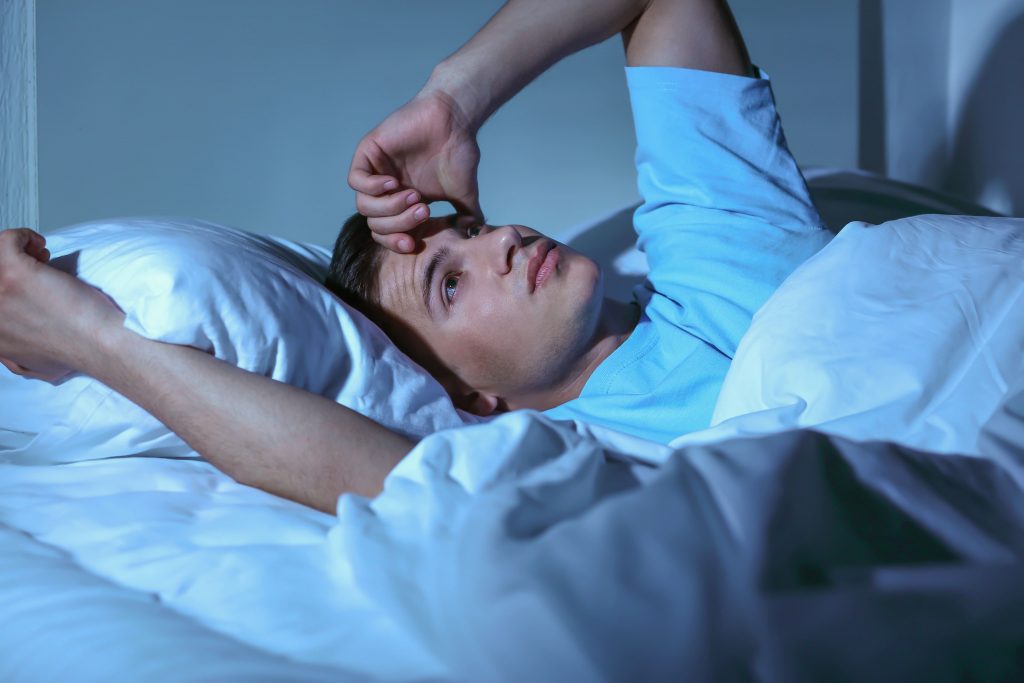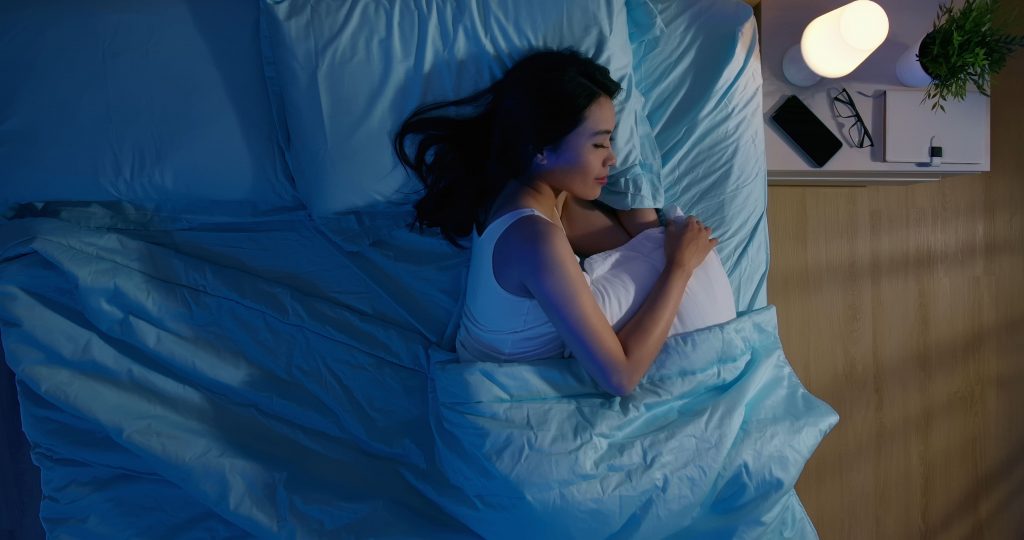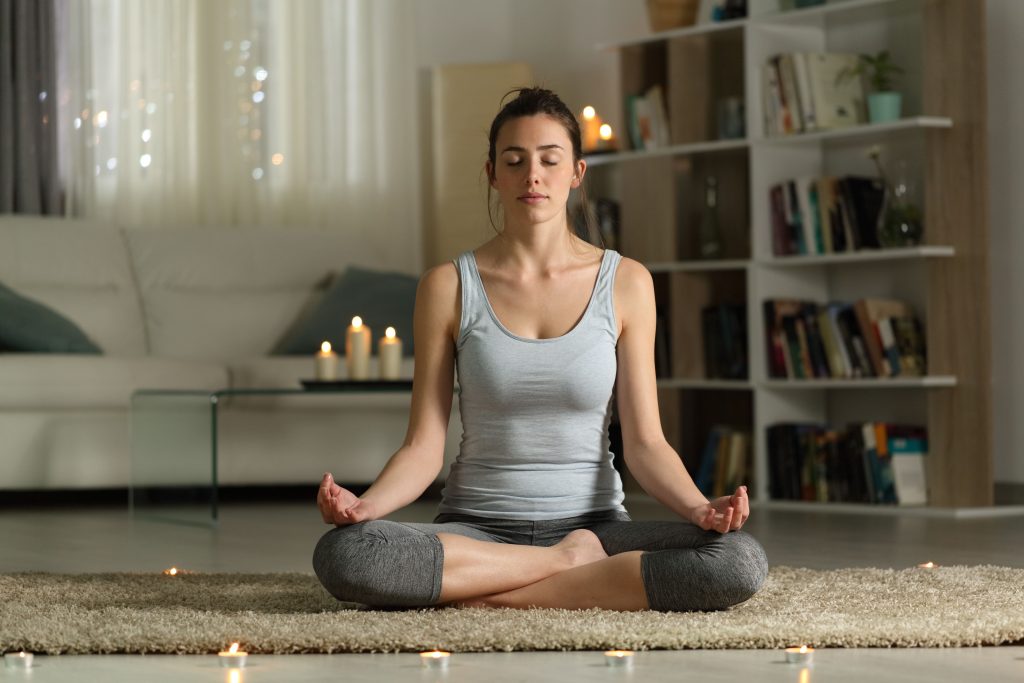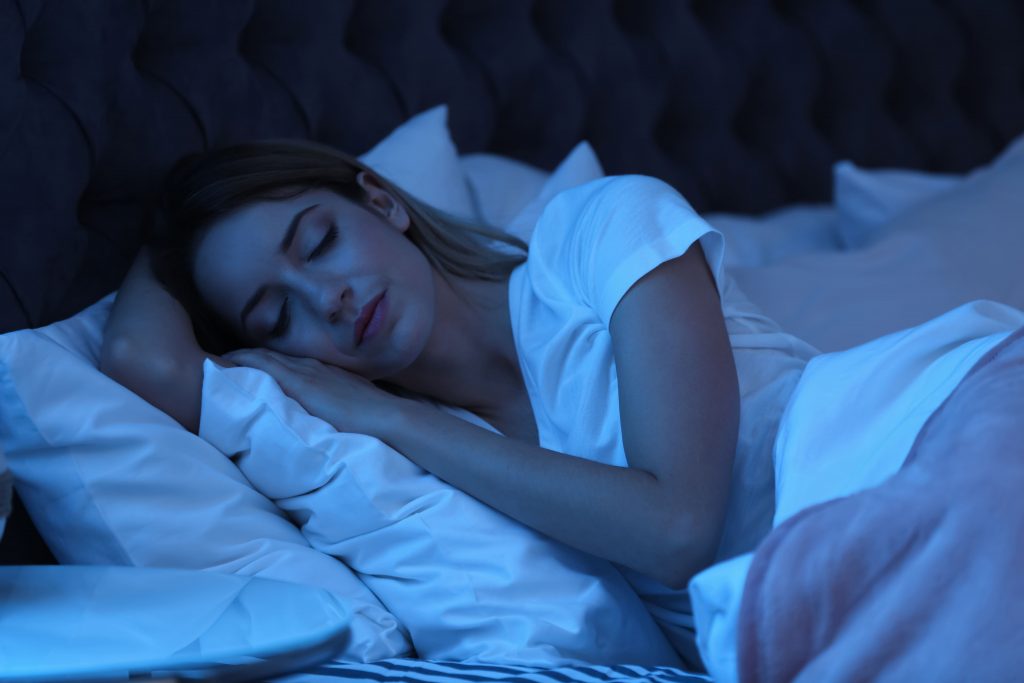Getting a good night’s sleep is the key to staying fit and fully engaged in your day’s activities. To help you fight insomnia and fall asleep faster, here are 3 tips inspired by recent scientific research to condition your brain and prepare it for sleep. As a bonus, find 10 simple tips to create a sleep-inducing atmosphere before bed and signal to your brain that it’s time to sleep.
Lure Your Brain with the Paradoxical Intention Method!

Strange as it may seem, saying the opposite of what you want to achieve with conviction can be an effective way of getting you to your goal! By telling yourself to stay awake, you may end up nodding off! Why? When you are sleepless, stress increases: by trying to fall asleep as quickly as possible, you artificially maintain this tension, which is precisely what keeps you awake. When it perceives (or believes it perceives) danger, the brain emits hormones to keep you alert, ready to defend yourself. The paradoxical intention method defuses this process because what is at stake (staying awake) does not cause any anxiety or pressure in you (and for good reason!). Commonly used in cognitive and behavioural therapies, this absurd reasoning, which consists of facing one’s fear, has shown good results in the fight against insomnia.
Make a List of Things to do Before You Go to Sleep

According to a study conducted by Baylor University in the United States in 2018, the simple act of listing the tasks planned for the following day significantly reduces the time taken to fall asleep, and the more detailed the list, the more effective. The study, which was carried out using polysomnography, involved a sample of 57 participants, half of whom were asked to write down the tasks they had completed during the day, and the other half detailed the tasks they would perform the following day. Those who wrote down future tasks fell asleep more quickly. By writing down what you need to remember, you clear your mind and find peace more easily.
Reduce Anxiety and Anticipatory Stress with Positive Thinking

Putting pressure on yourself about bedtime causes what is called negative anticipation, which manifests itself in phrases such as: “If I don’t go to bed at such and such a time/If I don’t get my 7 hours of sleep, tomorrow (add the negative consequence of your choice)”. In a similar way to the placebo effect, this type of thinking keeps you awake and keeps the brain awake, maintaining the vicious circle of insomnia in the same way as when you ruminate on professional or personal problems before sleeping. Here are 2 options to help reverse the trend:
- Give yourself one moment a day to ruminate, but away from your bedtime, to take stock of what is troubling you or occupying your thoughts. Write down what is bothering you if you wish so that you can find solutions in due course, and then get on with your day.
- Replace negative expectations with positive thoughts. Visualise yourself in a position of success, formulate affirmative sentences (in the present tense) and not hypothetical ones: “I can do it, and I know why I am doing it”, “I had a good day, and I deserve a good night’s sleep”, “Let’s see about tomorrow, but first, I’ll sleep to make myself feel better!”
10 Bonus Tips to Give Your Brain the Right Signals

To show your brain that it’s time to go to sleep, try these 10 simple and familiar tips tonight:
- Place your phone away from your bed
- Remove all sources of light from the sleeping area
- Open the window to keep your room cool
- Hide your clock
- Avoid your room during the day so that you only associate it with sleep
- Take a warm shower to lower your body temperature
- Dim ambient light at least 30 minutes before going to sleep
- Breathe slowly to slow your heart rate
- Tighten and then relax all the muscles in your body one by one
- Put a few drops of lavender essential oil on your pillow
Check out our Health & Fitness page for more advice.
